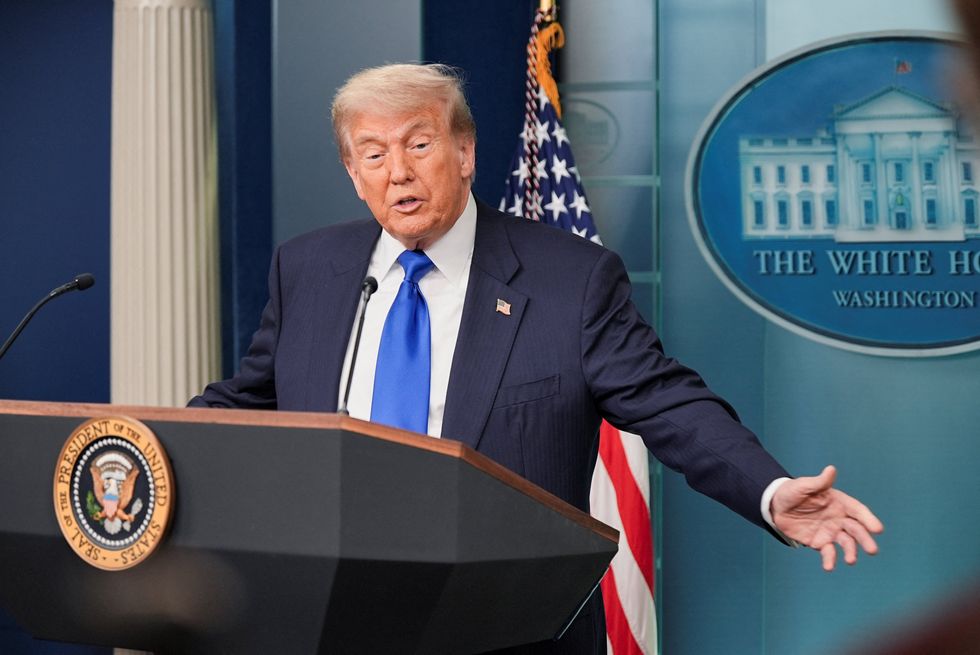US President Donald Trump’s administration is facing sharp criticism from within the Environmental Protection Agency (EPA), as hundreds of employees have accused the government of “ignoring the scientific consensus to benefit polluters.” This bold assertion was made in a letter of dissent released on Monday, signed by more than 200 current and former officials and their supporters. The letter accuses EPA chief Lee Zeldin of enacting policies that are potentially harmful to both human health and the environment.
According to the letter, “The decisions of the current administration frequently contradict the peer-reviewed research and recommendations of Agency experts.” It further warns, “Make no mistake: your actions endanger public health and erode scientific progress — not only in America — but around the world.” Under Zeldin’s leadership, the EPA has been working to fulfill Trump’s campaign promises, which include lifting environmental regulations, boosting fossil fuel production, and cutting clean energy spending.
Concerns Over Politicization and Policy Reversals
The letter highlights five primary areas of concern, including the increasing politicization of the agency, the reversal of programs aimed at supporting marginalized communities, and the “dismantling” of the agency’s Office of Research and Development. It criticizes the agency’s communications under Zeldin as being used “to promote misinformation and overtly partisan rhetoric.” The letter emphasizes that “This politicized messaging distracts from EPA’s core responsibility: to protect human health and the environment through objective, science-based policy.”
One example cited in the letter is the agency’s official communications that likened “climate science to a religion,” a statement that many employees found troubling. Zeldin, however, has maintained that his vision for the EPA is to support US economic growth. Under his guidance, the agency has initiated a full-scale reversal of several environmental standards and greenhouse gas regulations.
Historical Context and Expert Opinions
The current situation at the EPA is reminiscent of past conflicts between science and politics. Historically, environmental policy in the US has often been a battleground for differing ideologies. During the Reagan administration, for example, similar tensions arose when environmental regulations were rolled back in favor of economic growth. Experts argue that while economic considerations are important, they should not overshadow the need for scientifically informed policies.
Dr. Jane Smith, a professor of environmental policy at Georgetown University, commented, “The EPA was established to ensure that environmental protection is based on sound science. When political agendas interfere with this mission, it can have long-lasting impacts on public health and the environment.”
“We are driving a dagger straight into the heart of the climate change religion to drive down cost of living for American families, unleash American energy, bring auto jobs back to the US and more,” said Lee Zeldin, EPA Administrator.
Implications and Future Outlook
The dissent within the EPA reflects broader concerns about the Trump administration’s approach to science and environmental policy. The letter from EPA employees follows a similar text published by dozens of employees from the National Institutes of Health, criticizing the administration’s “harmful” policies. The EPA letter, which included more than 170 “anonymous signers,” suggests that there is a “culture of fear” within the agency, potentially stifling open dialogue and dissent.
Looking forward, the actions and policies of the EPA under the current administration could have significant implications for both domestic and international environmental efforts. As the world grapples with climate change and environmental degradation, the role of the EPA in shaping US policy will be critical. Observers and stakeholders will be closely watching how these internal conflicts are resolved and what impact they will have on future policy directions.
The debate over the balance between economic growth and environmental protection is likely to continue, with the EPA at the center of this ongoing discourse. As the situation develops, the agency’s ability to uphold its mission of protecting human health and the environment through science-based policies will remain a key point of contention.
About The Author
 FAU’s Rising Star Paulina DeVito Wins Esteemed NSF Fellowship
FAU’s Rising Star Paulina DeVito Wins Esteemed NSF Fellowship Nanoparticle Breakthrough Enhances Chemotherapy Precision and Safety
Nanoparticle Breakthrough Enhances Chemotherapy Precision and Safety Downton Abbey’s New Era and Ryan Gosling’s Sci-Fi Debut
Downton Abbey’s New Era and Ryan Gosling’s Sci-Fi Debut July 4th: Unpacking America’s Most Violent Day of the Year
July 4th: Unpacking America’s Most Violent Day of the Year Malala Yousafzai Urges Support for Afghan Female Athletes as Resistance to Taliban
Malala Yousafzai Urges Support for Afghan Female Athletes as Resistance to Taliban